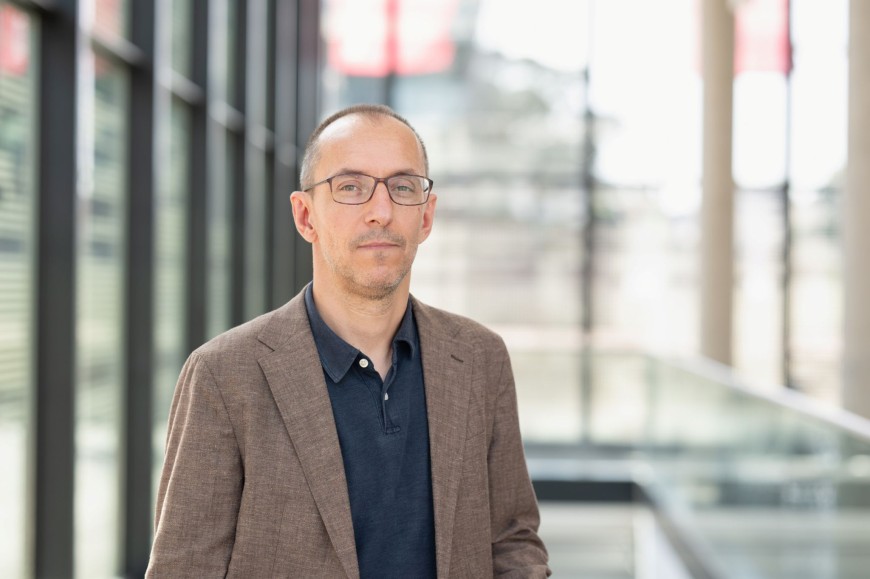Housing as a Central Challenge of Architecture
Reflections on the Inaugural Lecture by Prof. Dr. Martino Tattara
2025/01/27

Dean Felix Waechter emphasized the importance of housing as a core task of architecture in his opening remarks: “The home is the center of life, a place of comfort and work, but also a mirror of societal developments.” He addressed current challenges such as the shortage of affordable housing, the need for new housing models for an aging population, and the increasing convergence of living and working spaces. Felix Waechter also underscored the pressing need to build resource-efficiently and sustainably, preserve existing structures, and adapt housing to meet the needs of an increasingly diverse society.
In this context, he praised the work of Prof. Tattara and his office, DOGMA, which has gained international recognition through visionary projects and theoretical research. DOGMA focuses on the transformation of housing across various scales, from urban planning to the development of innovative housing typologies. “His expertise and international perspective are valuable contributions to the development of the department and European collaborations, particularly in light of the new bilingual master's program,” Felix Waechter explained, concluding his welcome with: “Even though you’ve been with us since July, I’d like to officially say once again: Welcome to the department!”
Living Another Way
In his inaugural lecture, titled “Living Another Way,” Martino Tattara explored the topic of housing from historical, theoretical, and practical perspectives. In the first part, he presented the work of his office, DOGMA, and its developments over the past two decades. The second part drew on current research he conducted in occasion of a recent exhibition held in Brussels. Through case studies, he examined four key themes: housing and gender, living and working, ownership and retrofitting, and transformation. Examples ranged from historical projects such as the Minangkabau longhouse in Indonesia and Claude-Nicolas Ledoux’s Salines of Chaux (1774) to more modern approaches like the Artaud project in San Francisco (1971) and Dolores Hayden’s HOMES proposal (1980). Complementing these, he shared observations on contemporary housing practices in Brussels that challenge conventional notions of housing and household structures.
In the final part of his lecture, Tattara proposed possible directions for research and teaching at TU Darmstadt. His pedagogical approach emphasizes learning in realistic scenarios without neglecting architectural expertise and disciplinary knowledge. He promotes this through the integration of diverse references and tools, aiming to inspire students to engage deeply with housing design.
